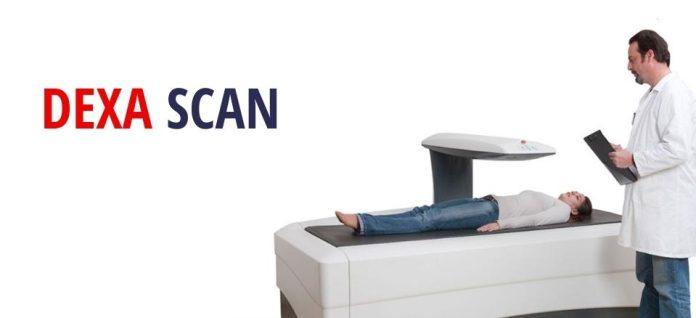Modern health transformation is emerging. Amongst other technologies, medical imaging is allowing doctors to analyse your body’s minor to major problems without any surgery. For that matter, Dexa Scan and MRI Scan are two prominent scans that diagnose bone health and soft tissues inside a body.
However, many of you confuse Dexa scan and an MRI scan to find solutions to the same problems. You are not alone. But understanding the differences between these scans will clarify all your doubts. Whether you’re a patient, a curious learner, this blog will explain all about these scans, their key differences, and when to use both.
What is a DEXA Scan?
Let’s start with the DEXA scan. DEXA stands for Dual-Energy X-ray Absorptiometry. It is a special type of X-Ray that checks your bone density. Professionals use DEXA Scan to identify if a person has osteoporosis, a health condition where bones become brittle. The X-Rays help doctors to understand what is causing it.
How Does the Process Work?
During the Dexa scan, you’ll lie down on a padded table while a machine passes over your body. The machine sends out very small amounts of X-rays at two power levels. These X-rays pass through your bones, and the machine measures how much of these energy levels can a bone tissue absorb to see if you have strong and dense bones.
The scan takes about just 10 to 20 minutes and is painless. The best thing is you don’t have to prepare for anything. As a result, you will get T-scores which compare bone density to a healthy young adult. A low score means lower bone density.
What is an MRI Scan?
Now, MRI stands for Magnetic Resonance Imaging. Unlike a DEXA scan, the MRI scan uses powerful magnets and radio waves to scan the interiors of your body.
MRI scans are helpful as the machine can scan almost any part of your body—brain, muscles, joints, spine, and even your heart. If your doctor needs to check soft tissues (like muscles, ligaments, or organs), finding an MRI Scan near me is the go-to choice.
How Does It Work?
During an MRI, you’ll lie down inside a big tube-like machine. The process starts when the machine sends out powerful magnets and radio waves to create a magnetic field around your body. These radio waves interact with the protons inside your body which signals the machine about your inner health condition. Then, the computer picks up these signals and starts with creating detailed images of your body’s current structure.
An MRI scan usually takes 30 minutes to over an hour. It’s painless, but its enclosed space might make some people uncomfortable. To get clear images, the process requires you to stay still and in some cases, have special dye through IV to get the sharp tissue images.
Finding an MRI Scan near me is crucial to make the whole process less uncomfortable for you or your loved one.
The Key Differences
Now that you know what each of the scans does, let’s talk about their differences.
1. Purpose:
A DEXA scan is ideal for diagnosing osteoporosis. An MRI, on the other hand, is useful for spotting a brain tumour, checking for a torn ligament, or evaluating heart conditions.
2. Technology:
DEXA uses X-rays which are great for seeing through bone health, while the MRI uses magnetic fields and radio waves which makes it suitable for examining soft tissues.
3. Radiation Exposure:
A DEXA Scan involves a small amount of radiation, similar to that of a dental X-ray. MRI scans, on the other hand, do not involve radiation at all. This makes MRI a safer option for frequent scans or for pregnant women.
4. Versatility:
While DEXA scans are highly specialised and only measure bone density, MRI scans can be used to image almost any part of the body in great detail. This makes MRI a more versatile diagnostic tool.
When to Use Both?
You are now familiar with the meaning of these scans and when to find DEXA and search for MRI Scan near me. In some cases, you might need both scans, especially if you have a condition that affects both bones and soft tissues. Your doctor will guide you on what’s best for your specific situation.
Final Thoughts
We hope you found this blog useful. While both DEXA and MRI scans are helpful for diagnosing extreme medical conditions, it is best to be aware of their different purposes. As discussed, understanding these differences will give you the knowledge to choose the best services if your doctor ever recommends one of these scans.
And remember, always discuss any concerns or questions with your healthcare provider—they’re there to help you navigate these decisions with confidence. If you are considering any of these scans already, choose a DEXA scan or search for an imaging centre for MRI Scan near me today.
